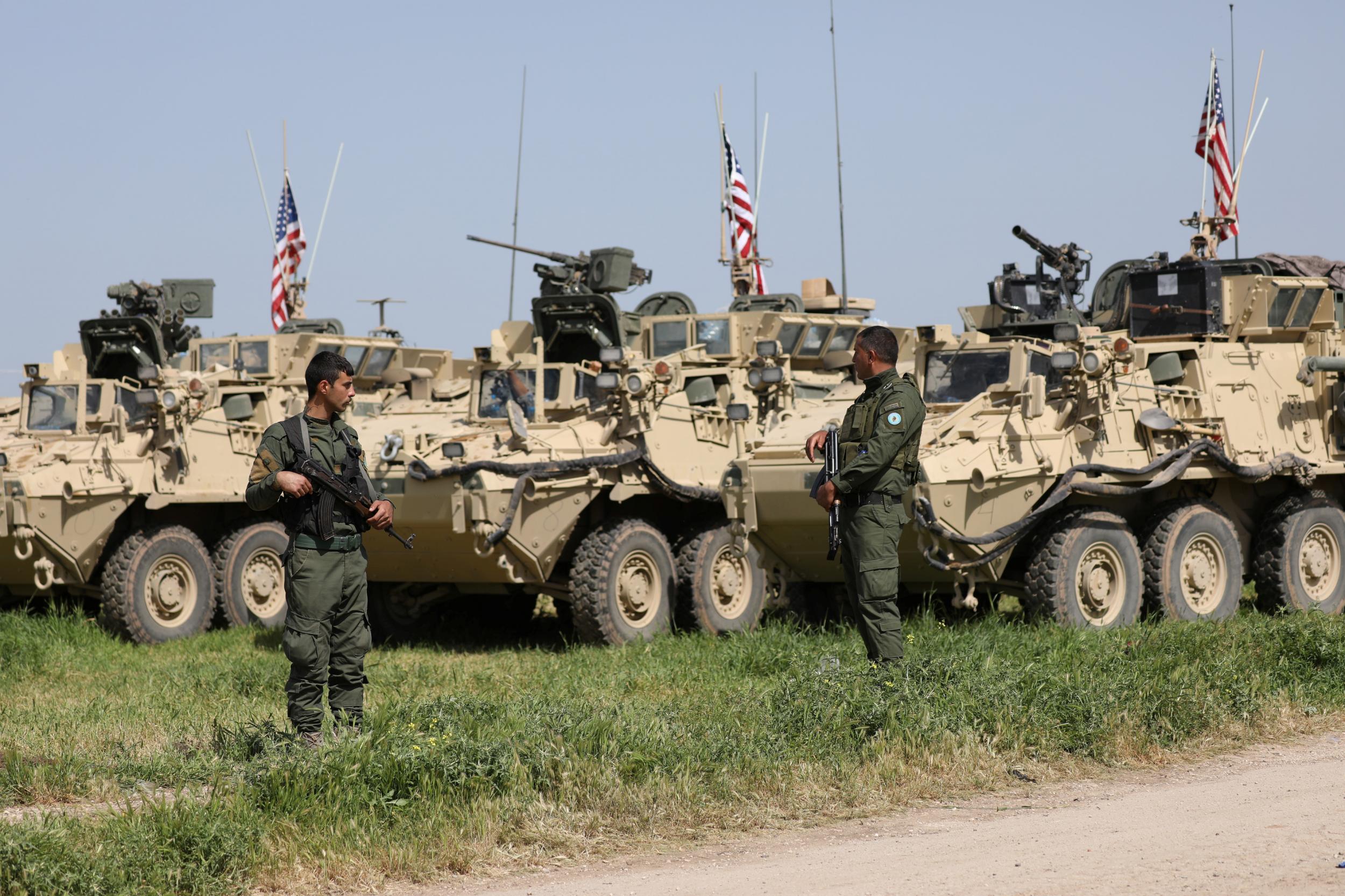Turkey condemns US for arming Kurds with weapons ahead of Raqqa assault
Ankara describes move as ‘extremely dangerous’, urging Washington to reverse its policy ‘mistake’ before arms are used against targets other than Isis

The Pentagon has confirmed the first new shipment of arms to Kurdish fighters closing in on Isis in the militants’ de facto capital of Raqqa is on its way to Syria.
Small arms including AK-47s and small-calibre machine guns as well as vehicles were being transferred to the US-backed Syrian Democratic Forces (SDF), a mainly Kurdish alliance of fighters, spokesperson Eric Pahon told reporters on Tuesday.
The news was met with consternation in Ankara, where Turkish Foreign Minister Mevlut Cavusoglu called the decision a “mistake”.

“Such steps are extremely dangerous for Syria's unity and territorial integrity,” he added in a news conference on Wednesday.
Under Barack Obama’s administration, the US has long given quiet support to Kurdish fighters in the region, which are widely viewed as the most effective ground force against Isis.
Nato ally Turkey has protested the US-Kurdish alliance for years because it views the Turkish separatist PKK movement and its affiliates in Syria as terrorist organisations.
The new administration’s decision to continue Mr Obama’s policy comes as the SDF prepares for the final assault on Isis’ stronghold of Raqqa in the north of the country.
Turkey had previously tried and failed to persuade the US to let up to 10,000 Turkish-backed troops lead the assault instead.
On some fronts SDF fighters are now just two miles (three kilometres) away from Raqqa’s outskirts after a successful offensive on the nearby town of Tabqa earlier this month.
The operation is designed to dovetail with efforts in neighbouring Iraq to drive Isis from the northern city of Mosul. The gruelling eight-month long battle is nearly over, with the last militants hunkered down in the historic city centre.
The battle for Raqqa is also expected to be long and bloody.
Turkish President Recep Tayyip Erdogan had previously expressed his concerns about directly providing Syria’s Kurds with weaponry in a meeting with US President Donald Trump at the White House on 16 May.
“It is absolutely unacceptable to take the YPG-PYD into consideration as partners in the region, and it’s going against a global agreement we reached,” Mr Erdogan told media after the talks, referring to the both the fighting and political units of the Kurdish autonomous movement in Syria.
“The president clearly expressed our position and concerns during his Washington visit. It was stressed how risky and dangerous the support given to the YPG was,” Mr Cavusoglu said on Wednesday.
“These weapons could be used against all humanity, not just Turkey.”
US government audits studied by Amnesty International in findings released last week showed than $1 billion (£78 million) in weapons already supplied to local Kurdish fighters in Iraq in 2016 are currently unaccounted for.

Many players in Syria’s complex and multi-sided civil war are worried that the new influx of weaponry could further destablise the country if weapons are leaked or diverted to other groups once Isis militants are defeated.
Several Iraqi forces aided by weapons and training from the US have since been accused of human rights abuses in the fight against Isis.
Iraqi coalition spokesperson Colonel John Dorrian said although the weapons will not be reclaimed the US will “carefully monitor” where and how they are used.
“Every single one” of the weapons will be accounted for and the US will “assure they are pointed at” Isis, he said, adding that the shortcomings identified in the Amnesty report had been examined and corrected.
Join our commenting forum
Join thought-provoking conversations, follow other Independent readers and see their replies
Comments